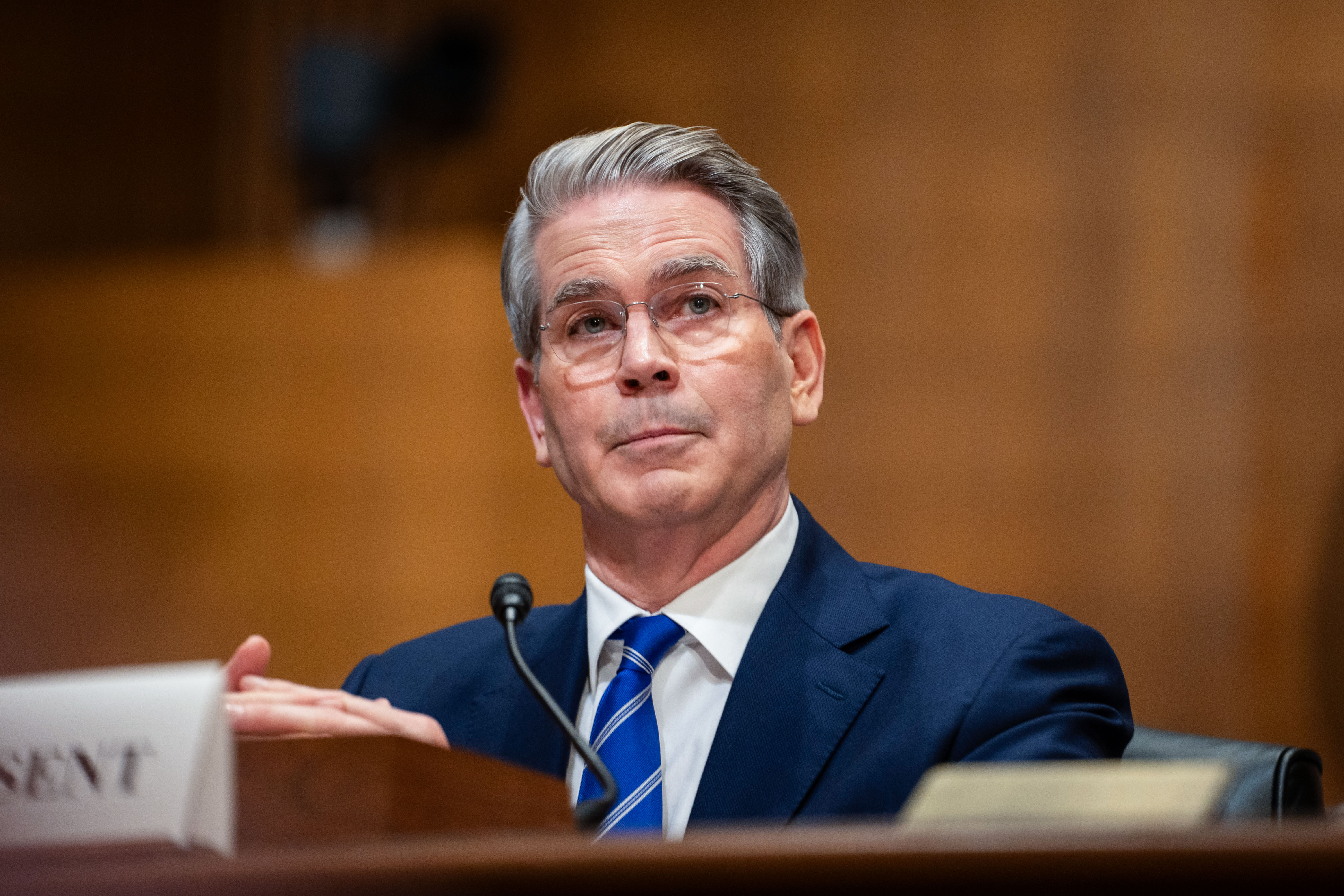Interior nominee Doug Burgum told Sen. Ron Wyden (D-Ore.) that he would work with Democrats on alternative energy solutions.
“You can count on that, that I will,” Burgum said.
The question followed a prior exchange with Sen. Angus King (I-Maine), during which Burgum appeared lukewarm on the benefits of wind power—an energy source President-elect Donald Trump has frequently criticized as ineffective and harmful to wildlife.

Billionaire hedge fund manager Scott Bessent expressed opposition to a central bank digital currency (CBDC) in the United States.
"I see no reason for the U.S. to have a central bank digital currency," Treasury secretary nominee Bessent told the Senate Finance Committee during his confirmation hearing.
The purpose of a CBDC, said Bessent, is for nations that do not have any other investment alternatives.
In his confirmation testimony, Scott Bessent called for enforcing purchase provisions included in the U.S.–China “phase one” trade agreement signed in January 2020.
Bessent, President-elect Donald Trump's nominee to serve as Treasury secretary told the Senate Committee on Finance on Jan. 16 that if he is confirmed, he will "begin pushing for the purchase guarantees that were in the [phase one agreement] to be enforced." Additionally, he said he may ask for a "catch-up provision."
In that agreement, according to a January 2020 fact sheet published by the U.S. Trade Representative's Office, China committed to importing a certain amount of U.S. goods and services in 2021 and 2022.

Nominee for secretary of the Treasury, Scott Bessent, defended President-elect Donald Trump's tariff plans in his Senate Finance Committee confirmation hearing on Thursday.
The Wall Street veteran urged lawmakers and the American people to view the incoming administration's trade levies in three different ways.
Tariffs will be used to remedy unfair trade practices, either by industry or country, Bessent said. They can also be used as a general tool to generate revenues. Lastly, tariffs can be employed for negotiating efforts, alluding to levies that could be imposed on Mexico surrounding the fentanyl crisis.

The Federal Reserve (Fed) and its monetary policy decisions should remain independent, according to Wall Street veteran Scott Bessent.
Bessent, President-elect Donald Trump's pick to head the Treasury Department, believes the interest rate-setting Federal Open Market Committee (FOMC) should stay independent.
Speaking in an exchange with Sen. Catherine Cortez Masto (D-Nev.), Bessent also supports Trump offering his view on monetary policy, comparable to congressional lawmakers.

Scott Bessent, President-elect Donald Trump's choice to lead the Treasury Department, said the Biden administration waited too long to apply sanctions on Russia following its invasion of Ukraine and were not stringent enough.
"I believe that the previous administration was worried about raising U.S. energy prices during an election season," Bessent told Sen. Mark Warner (D-Va.) during his Senate Finance Committee confirmation hearing on Thursday.
"I am perplexed to see that national security adviser [Jake] Sullivan, on his way out the door, is raising the sanctions level on Russian oil companies."
Sen. Alex Padilla (D-Calif.) asked interior nominee Doug Burgum if he would respond to future disasters, like the wildfires currently ravaging California, “with as much support and resources possible,” regardless of where they occur.
“Absolutely,” Burgum said, adding that he would even “go a step further.”
“When the dollars come up, this could be the most expensive wildfire, urban wildfire, in the history of the country,” Burgum noted. “It’s probably a time for all of us, together, to say, ‘What could we be doing differently?’”
Department of the Interior nominee Doug Burgum said, if confirmed, he would not lean on electric vehicle (EV) tax credits, as China controls 85 percent of the minerals used to manufacture those vehicles.
“I support economics and markets,” Burgum told senators during a confirmation hearing in front of the Senate Energy and Natural Resources Committee on Thursday.
He added that the United States is in a cold war with China, North Korea, and Russia.
In his confirmation testimony before the Senate Committee on Finance on Jan. 16, prospective Treasury Secretary Scott Bessent described the Chinese economy as the "most unbalanced economy in the history of the world."
When Sen. John Cornyn (R-Texas) asked about Treasury investment transparency requirements, Bessent said the United States must be aware that Beijing prioritizes military spending ahead of anything else.
"They are using their surpluses to fund their military machine in China," Bessent said.

Scott Turner cited a Department of Housing and Urban Development (HUD) report of record homelessness last year, and tied that increase to an influx in illegal immigration.

“When you have 12 to 20 million people coming across illegally to our country, it is going to be a great burden on economy, on housing, on homelessness, on health in our country,” Turner told senators on the Senate Banking, Housing, and Urban Affairs Committee on Thursday.

Scott Turner said as the head of the Department of Housing and Urban Development (HUD), his top priority would be easing the “regulatory burden” so development costs are lower, and the rate of construction quickens.
“We want to make it more flexible and easier for developers to build affordable workforce attainable housing across our country, and so if confirmed by this committee, one thing that I want to do, which is top priority, is look at all the regulatory burdens from the federal side,” Turner told senators on the Senate Banking, Housing, and Urban Affairs Committee on Thursday.
He said he would work with states and localities to see how the agency could ease regulatory burdens so “developers can build, and so the supply goes up as demand goes up.”

Sen. Mazie Hirono (D-Hawaii) challenged interior nominee Doug Burgum’s call for energy dominance, citing former defense secretaries’ claims that burning more fossil fuels could exacerbate wars.
Hirono pointed to comments from retired Gen. James Mattis, who served as defense secretary under President-elect Donald Trump’s first term, and retired Sgt. Chuck Hagel, who led the Pentagon under the Obama administration.
“These are two secretaries of defense. They know something about war,” Hirono said, asking Burgum if he was aware of their claims.

Scott Bessent, a seasoned hedge fund investor and nominee to serve as the next Treasury secretary, defended President-elect Donald Trump's tariff plans.
In an exchange with Sen. Ron Wyden (R-Ore.), the Senate Finance Committee ranking member, Bessent shrugged off the senator's idea that tariffs are a consumption tax increase that will harm workers and small businesses.
"I would respectfully disagree," Bessent said. "The history of tariffs and tariff theory—optimal tariff theory—does not support what you're saying."

Billionaire financier Scott Bessent, President-elect Donald Trump's nominee for Treasury secretary, says not extending the 2017 Tax Cuts and Jobs Act (TCJA) will cause an "economic calamity."
At his confirmation hearing before the Senate Finance Committee Thursday, Bessent told lawmakers that renewing or extending the Trump-era tax cuts is the "single most important economic issue" today.
"As always, with financial instability that falls on the middle- and working-class people, we will see a gigantic middle-class tax increase," Bessent said.
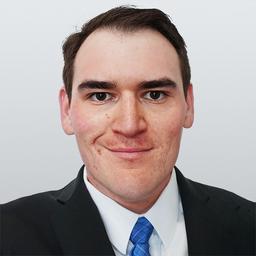

Scott Bessent, President-elect Donald Trump's nominee to serve as the next Treasury secretary, said he believes the incoming administration can create more jobs, wealth, and prosperity.
In his opening statement at his confirmation hearing before the Senate Committee on Finance on Jan. 16, Bessent, the founder of investment fund Key Square Group, said his career experience has granted him a deep understanding of the global economy and its markets.
Echoing Trump's views on the economy, Bessent said the Treasury Department, under his leadership, would see itself as a plank of the U.S. national security platform. Bessent said the department must work to "secure supply chains that are vulnerable to strategic competitors" and "carefully deploy sanctions."

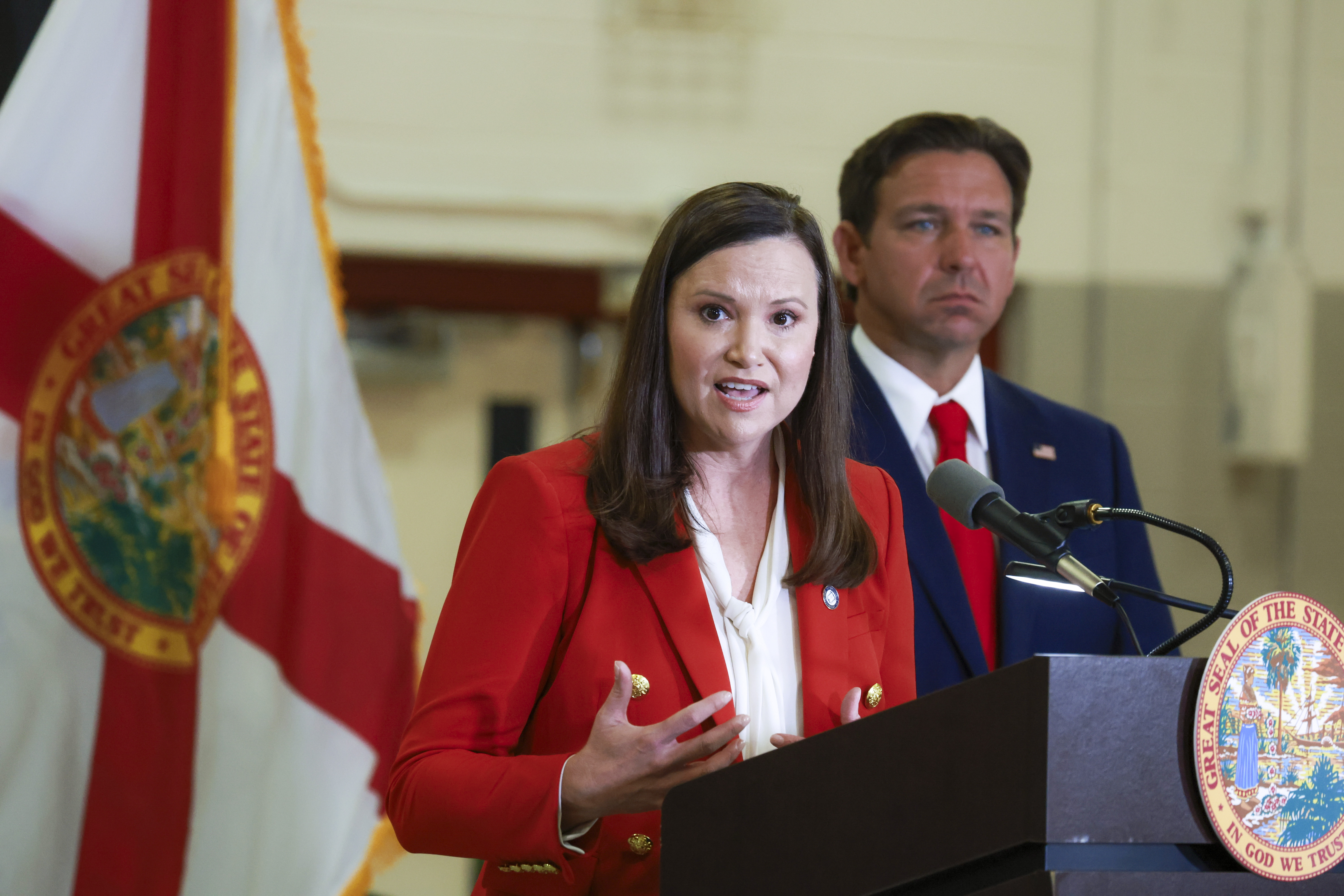
Florida Gov. Ron DeSantis on Jan. 16 announced that Ashley Moody, Florida’s attorney general, will replace Sen. Marco Rubio in the U.S. Senate, praising her as someone who will deliver results in step with the incoming administration’s America-first agenda.
Rubio is expected to resign from his seat upon receiving Senate approval to become the next secretary of state, and DeSantis said Moody will quickly fill the vacant seat.
In response to a question from Sen. Bernie Sanders (I-Vt.), Environmental Protection Agency nominee former Rep. Lee Zeldin (R-N.Y.) said climate change is real.
“I believe that climate change is real, as I told you, as far as President Trump goes, the context that I have heard him speak about it was with a criticism of policies that had been enacted because of climate change,” he said.
“And I think he's concerned about the economic costs of some policies where there's a debate and a difference of opinion,” he continued.

During questioning from Sen. Elizabeth Warren (D-Mass.), Scott Turner said the Department of Housing and Urban Development (HUD) needs to maximize its current budget instead of pursuing additional funding.
In fiscal year 2025, HUD’s budget reached $72.6 billion, an all-time high.
When Warren asked Turner, President-elect Donald Trump’s nominee to lead the agency, if he would pursue additional federal investment for programs to lower the cost of building affordable housing, he said HUD needs to better utilize its existing budget.


In response to a question from Sen. Sheldon Whitehouse (D-R.I.), Environmental Protection Agency (EPA) nominee former Rep. Lee Zeldin (R-N.Y.) said carbon dioxide is not a pollutant.

“I would say no,” Zeldin said. “As far as carbon dioxide that is emitted in larger masses that we hear concern about from scientists as well as from Congress, that's something that certainly needs to be focused on for the EPA.”
In his opening statement before the Senate Environment Committee, former Rep. Lee Zeldin (R-N.Y.), nominee for the Environmental Protection Agency, made a bipartisan appeal to work on the environment as well as the economy.
"We must do everything in our power to harness the greatness of American innovation with the greatness of American conservation and environmental stewardship, we must ensure we are protecting the environment while also protecting our economy,” he said.

President-elect Donald Trump’s nominee to lead the U.S. Department of Housing and Urban Development (HUD), former NFL player Scott Turner, cited HUD’s data showing the United States hit an all-time high level of homelessness last year.
The agency tallied more than 770,000 people living in homelessness on a single night in January 2024, which was an 18 percent increase from the year prior, and is likely an undercount.
“That’s a national embarrassment and something that cannot continue,” Turner said. “We have a housing crisis in our country, where American people and families are struggling every day.
Former Rep. Lee Zeldin (R-N.Y.) has been nominated by President-elect Donald Trump to be the administrator of the Environmental Protection Agency.
His nomination hearing before the Senate Environment Committee is underway.
Here’s what to know about Zeldin:
Former North Dakota Gov. Doug Burgum is President-elect Donald Trump’s pick to lead the Department of the Interior.
Burgum’s confirmation hearing before the Senate Energy and Natural Resources Committee kicks off at 10 a.m. on Thursday.
Here’s what to know about Burgum:

President-elect Donald Trump’s nominee for U.S. Treasury Secretary, Scott Bessent, will emphasize in his opening remarks the need for the United States to address national security concerns; that the government “must ensure that the U.S. dollar remains the world’s reserve currency”; and that Trump has the opportunity to unleash “a new economic golden age.”
He is set to face questions from the Senate Finance Committee regarding his stance on several matters, including tariffs and trade.
Bessent’s opening remarks, according to The Associated Press, will emphasize the need to secure vulnerable supply chains, levy sanctions, and reprioritize federal spending.


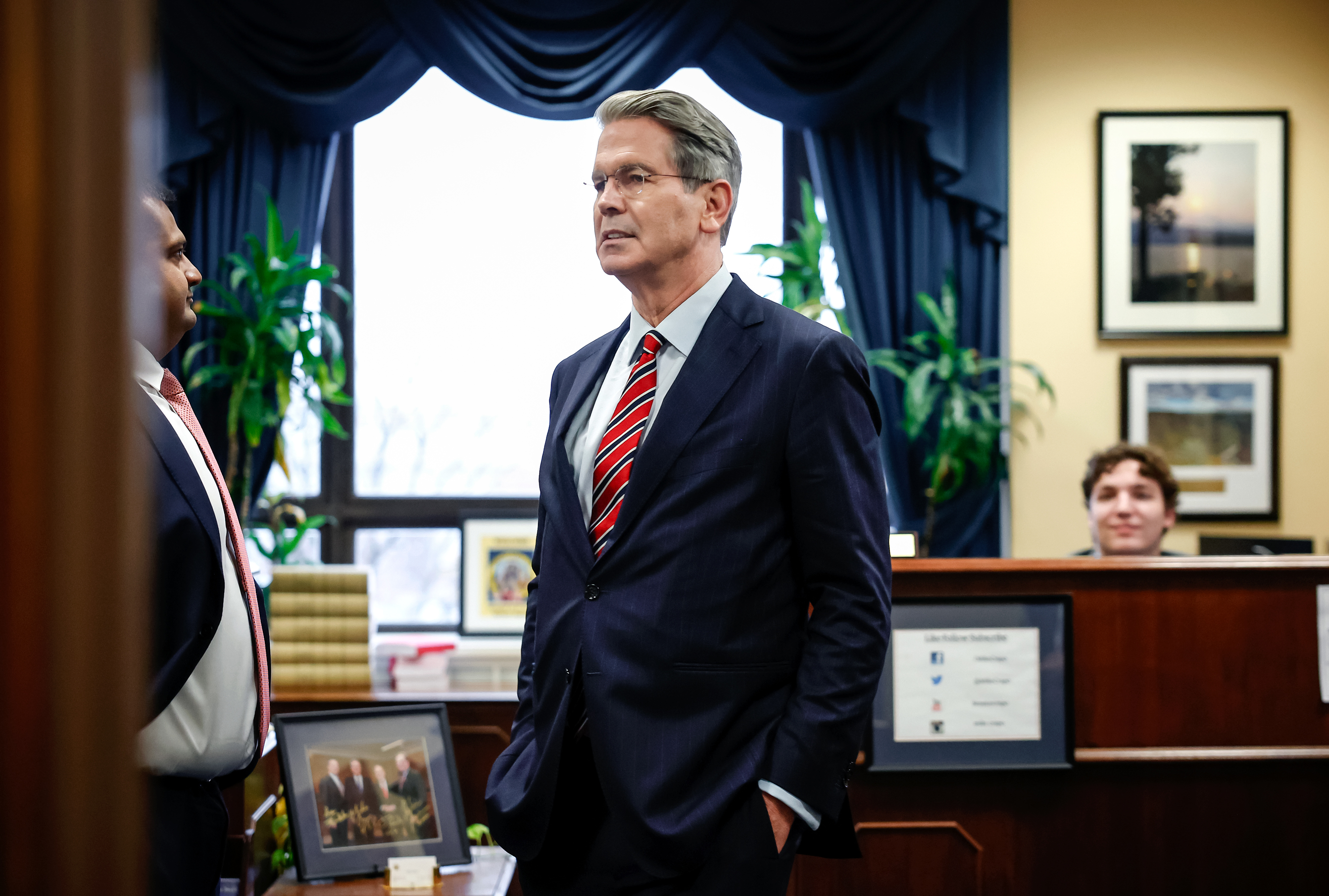
The U.S. Senate will continue its slate of high-stakes hearings to consider President-elect Donald Trump’s Cabinet nominations days before his inauguration.
Billionaire financier Scott Bessent, whom Trump tapped to head the Treasury Department, will headline the Jan. 16 schedule and appear before the Senate Finance Committee.
Former North Dakota Gov. Doug Burgum, whose confirmation hearing for secretary of the Department of Interior was delayed over paperwork issues, will sit in front of the Senate Committee on Energy and Natural Resources.

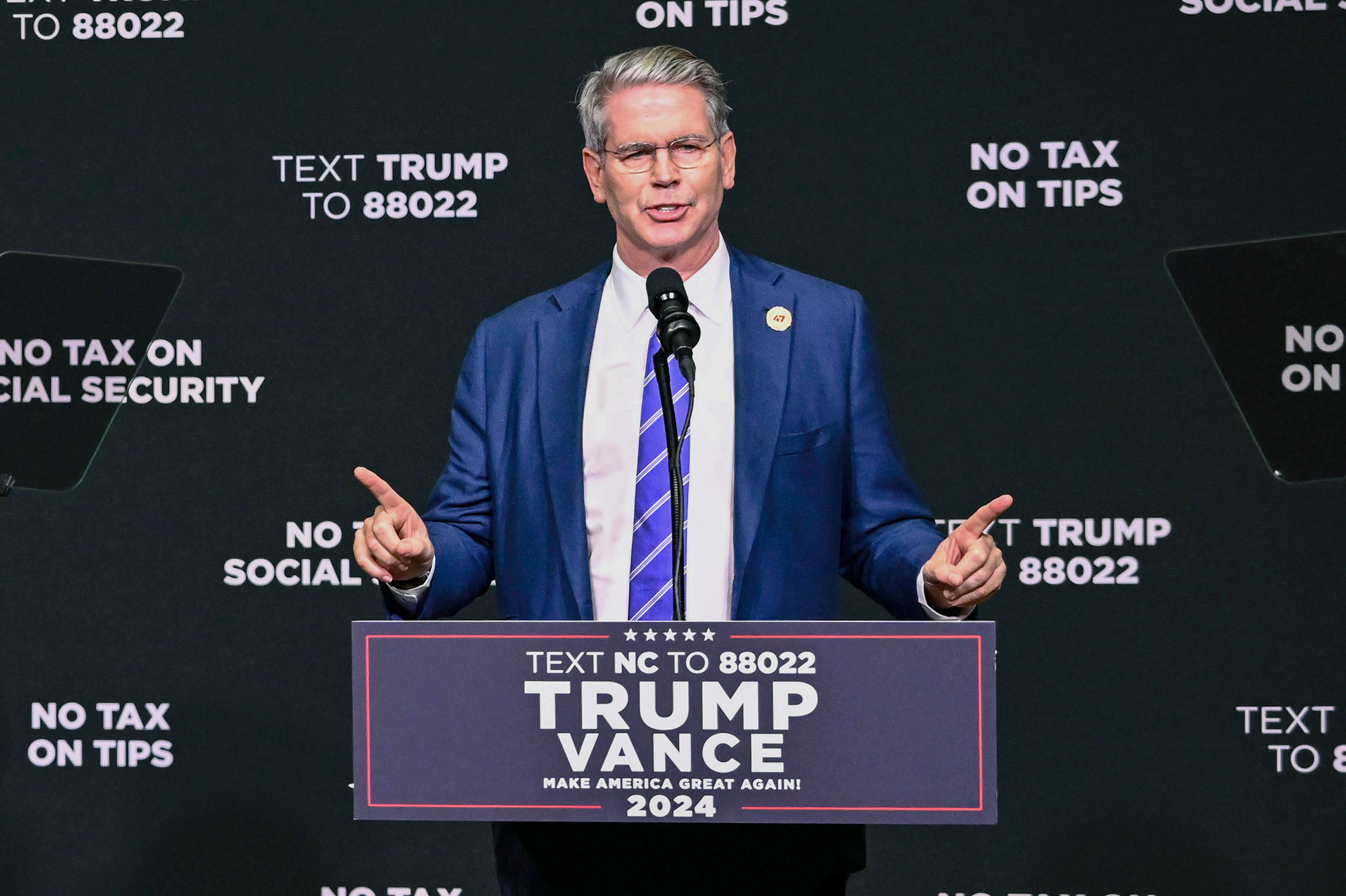
It could be said that President-elect Donald Trump’s Treasury Secretary nominee Scott Bessent’s plan for the world’s largest economy was inspired by the late Japanese Prime Minister Shinzo Abe.
A decade ago, the Japanese prime minister sought to overhaul the economy using a strategy called the “Three Arrows.” The three-pronged approach consisted of increasing government spending, easing monetary policy, and adjusting the economic landscape to bolster growth prospects.
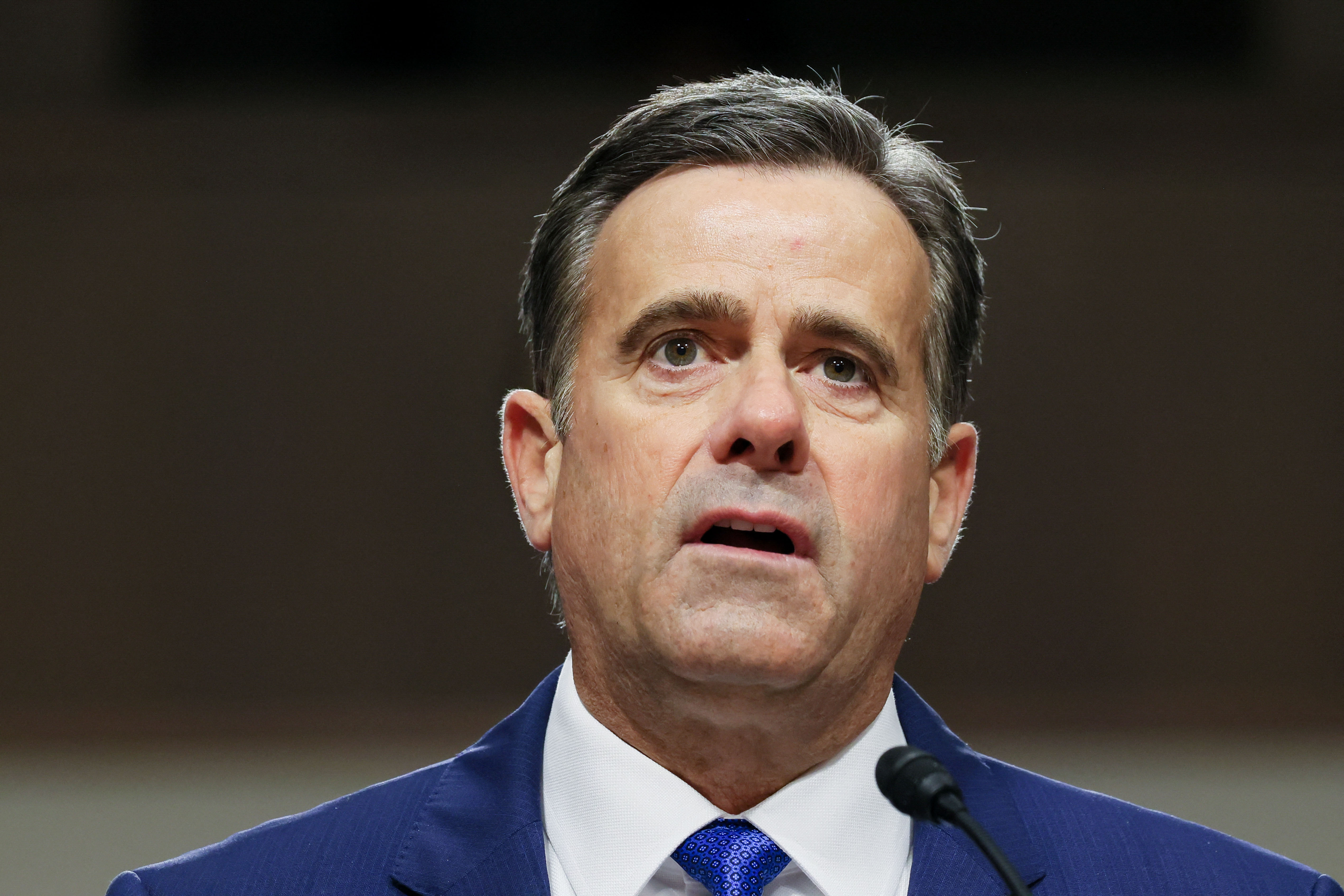
John Ratcliffe, President-elect Donald Trump’s pick for CIA director, told senators Wednesday that he would prioritize meritocracy in the agency, bring the cyber fight to China, and maintain robust intelligence gathering capabilities that have at times been weaponized against Americans.
Ratcliffe, who served as Director of National Intelligence (DNI) during the first Trump administration and previously served as a U.S. House representative for Texas, delivered the remarks to the Senate Select Committee on Intelligence during a Jan. 15 hearing to vet his nomination to lead the CIA.
Putting Merit First
Ratcliffe said he would employ “the ultimate meritocracy” throughout the agency and would seek to remove what he considered a “politically motivated, bureaucratically imposed social justice agenda” that distracts from the agency’s core mission.

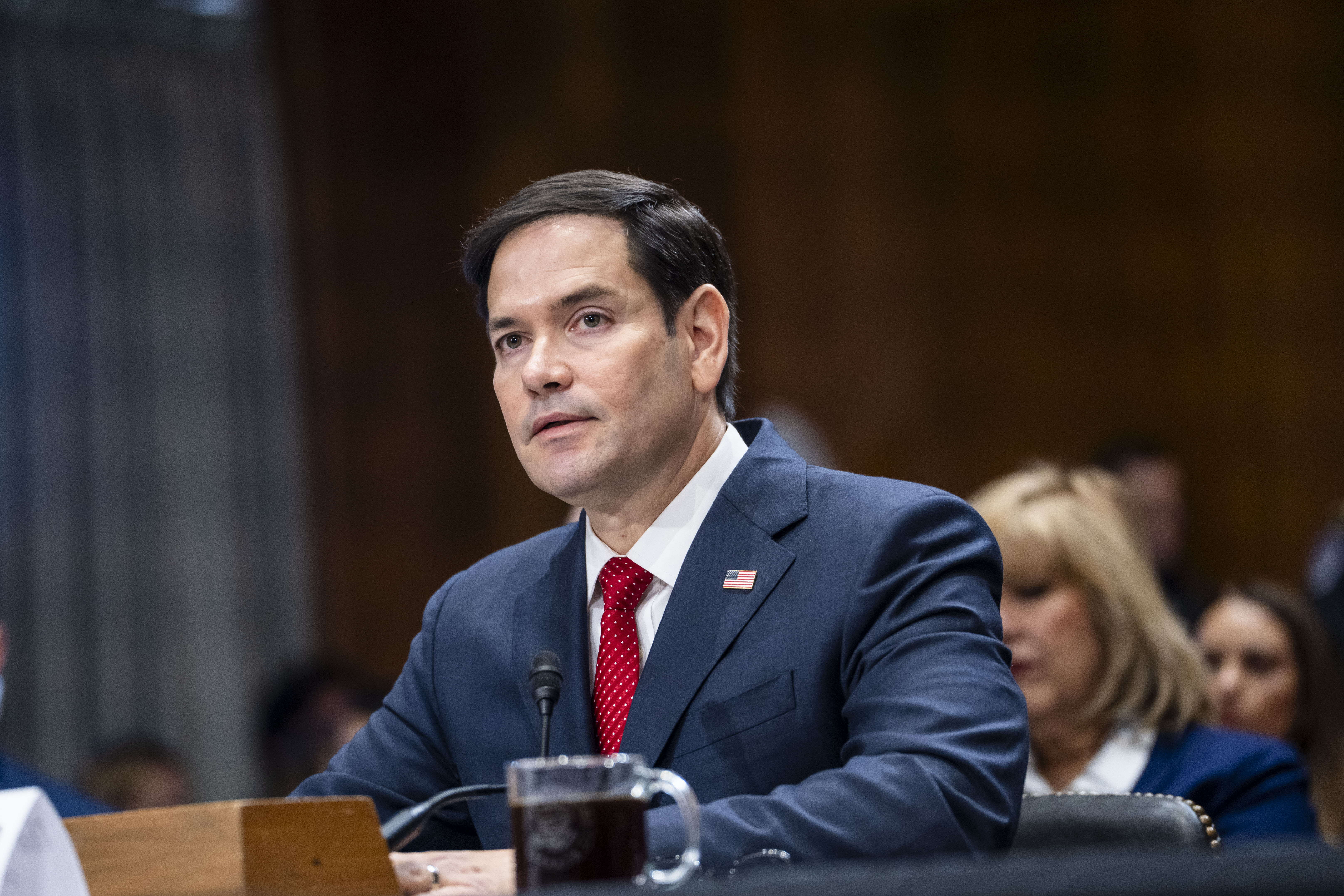
The atmosphere was congenial as Sen. Marco Rubio (R-Fla.) faced the Senate Committee on Foreign Relations in a confirmation hearing on Jan. 15.
Rubio, President-elect Donald Trump’s nominee for secretary of state, testified before a committee he has served on for 14 years. He addressed foreign policy questions from friendly colleagues on both sides of the political aisle to move forward with his confirmation process, with the chair and the ranking member of the committee concurring that he is qualified for the job.
As the son of Cuban immigrants who fled communism and built a stable life in the United States, Rubio was critical of the challenges presented by communist regimes such as China. He promised a robust foreign policy agenda that prioritizes U.S. interests and restores the global order that Beijing and other adversarial nations have weaponized to their advantage.

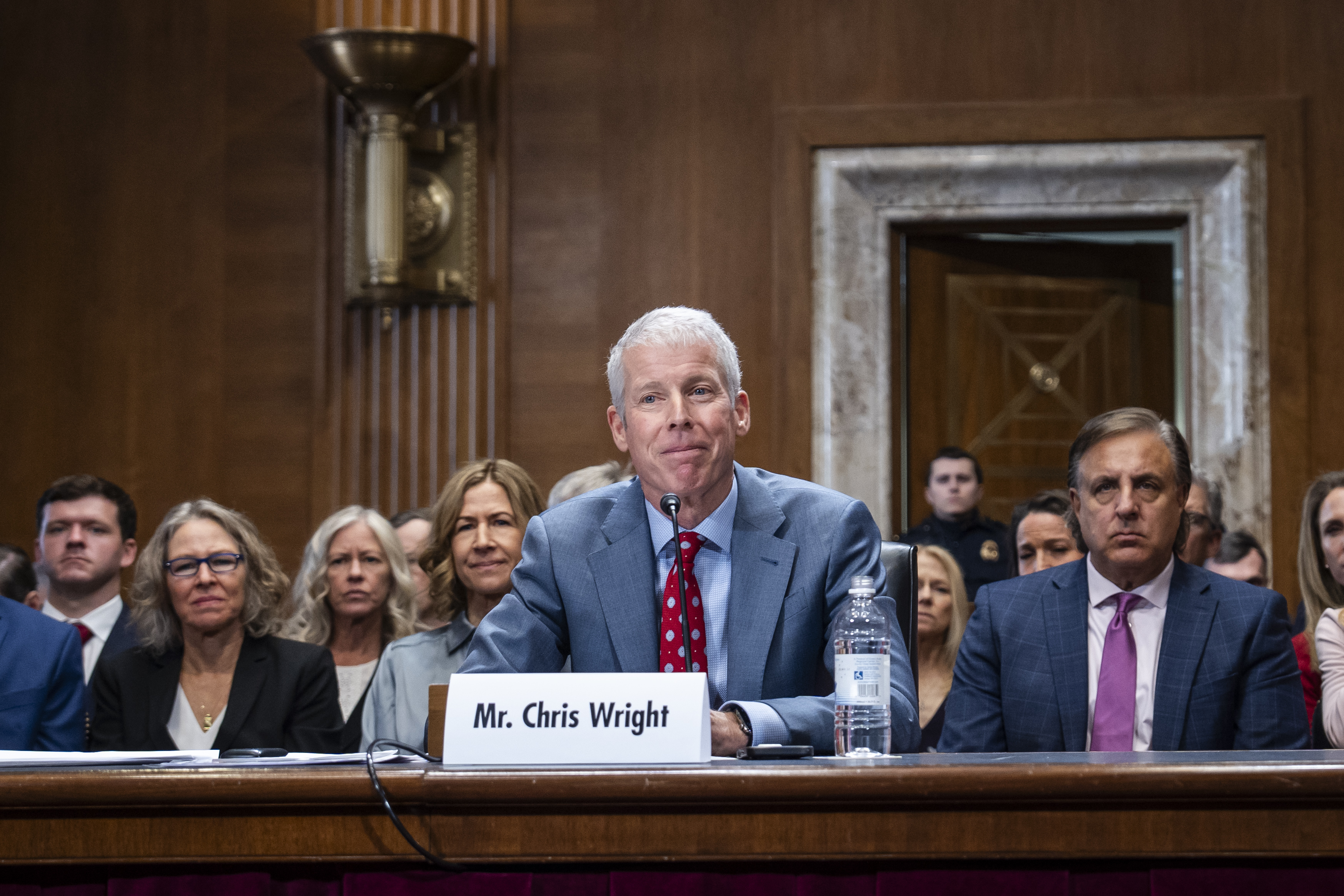
Energy Secretary nominee Chris Wright told key senators that, if confirmed, he would embrace an “all-of-the-above” approach to energy development, sustain funding for research programs, slash permitting timelines, encourage natural gas exports, and accelerate electric grid expansion.
During his nearly three-hour Jan. 15 nomination hearing before the Senate Energy and Natural Resources Committee, President-elect Donald Trump’s selection to lead the Department of Energy (DOE) said that upon assuming office, he would “immediately” freeze more than $25 billion in loans being processed by the DOE’s Loan Program Office (LPO) in the wake of recent inspector general (IG) disclosures.
Wright, the MIT-educated CEO of Colorado-based Liberty Energy, among the nation’s largest fracking contractors, was less resolute when asked how he would respond as DOE chief to anticipated efforts by the Trump administration to “claw back” funding in the annual budgets and spending programs authorized over multiple years by Congress.

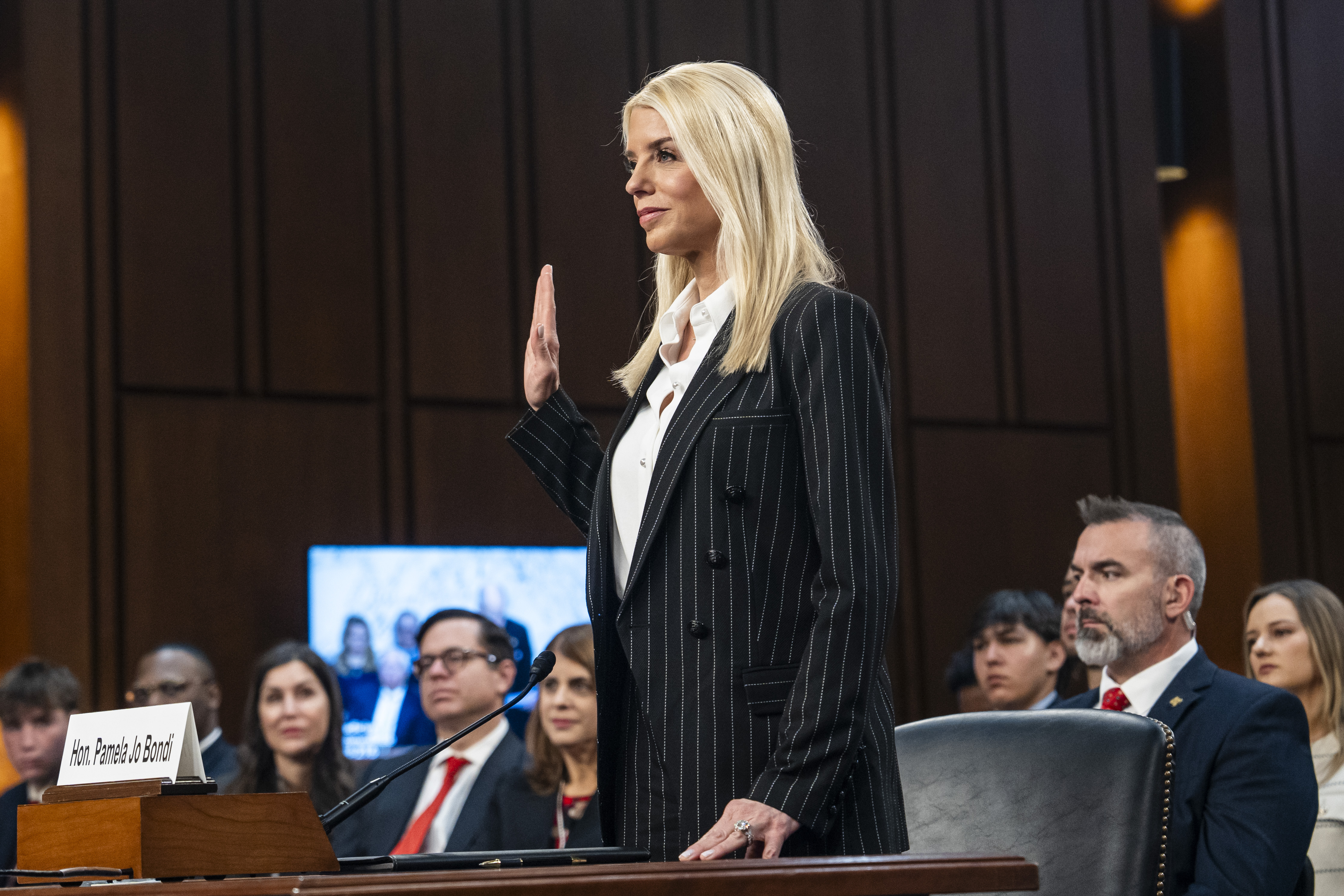
Former Florida Attorney General Pam Bondi fielded questions from the Senate Judiciary Committee on Jan. 15 as part of her confirmation process to serve as the next attorney general of the United States.
During the hearing, both sides of the aisle focused on concerns about the weaponization of the Department of Justice (DOJ), which Bondi pledged not to engage in.
Democrats tended to focus on Bondi’s ties with President-elect Donald Trump and her willingness to maintain the DOJ’s independence from the White House. She also encountered questions about illegal immigration, national security, and FISA warrants.

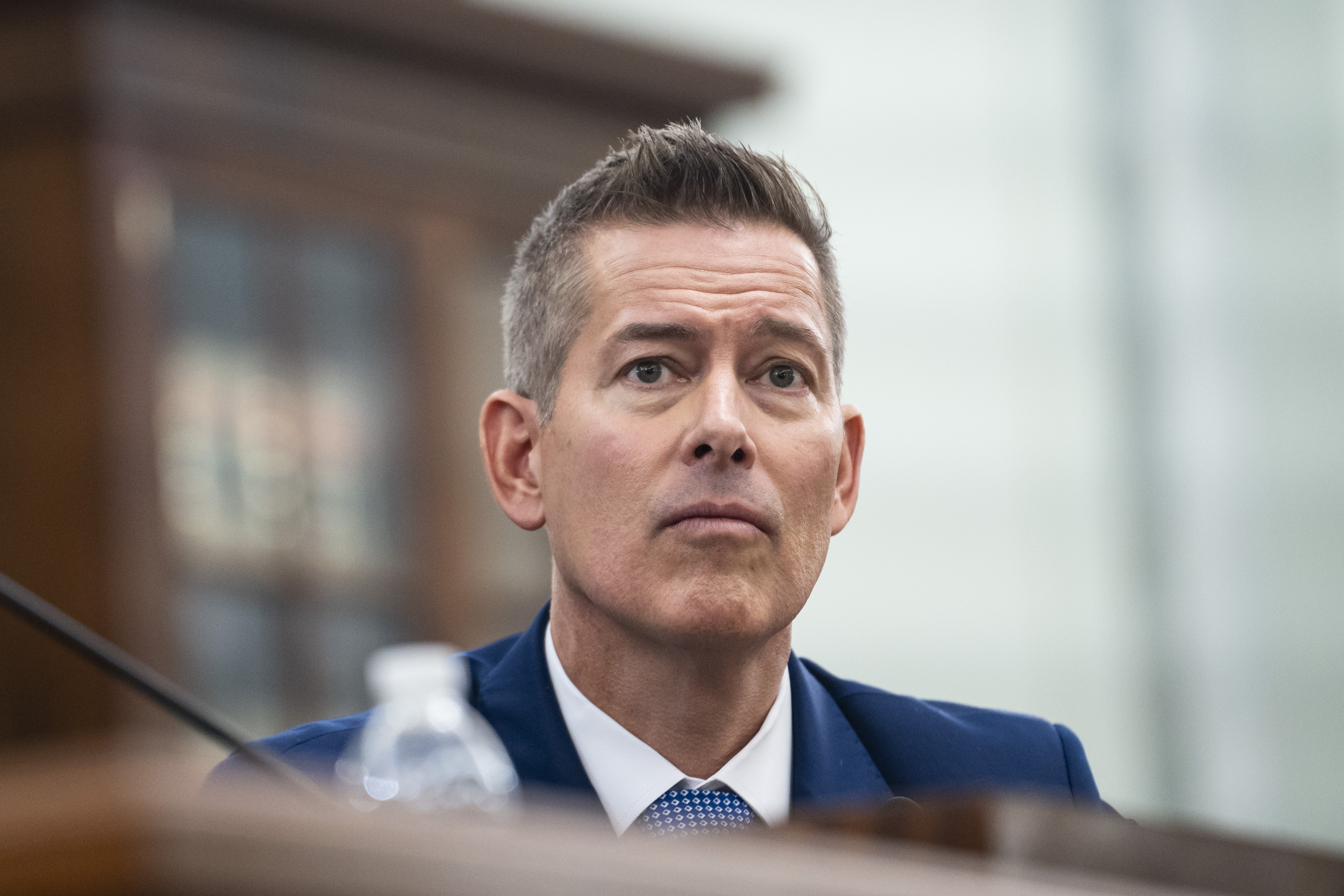
Former Rep. Sean Duffy (R-Wis.) has vowed to prioritize safety at the Department of Transportation, saying it would remain the top priority with aviation if he is confirmed by the Senate to lead the agency.
Duffy opened with those promises during his confirmation hearing before the Senate Committee on Commerce, Science, and Transportation on Jan. 15. Throughout questioning from senators of both parties, Duffy said he endorses the Federal Aviation Administration (FAA) continuing its oversight of Boeing, supports continued infrastructure funding, and wants full transparency on the mystery drones reported over multiple U.S. states for the past several months.
The hearing, led by Sens. Ted Cruz (R-Texas) and Maria Cantwell (D-Wash.), was cordial. Both Republican and Democratic senators expressed their fondness for Duffy and his vision of prioritizing safety with the Transportation Department.
